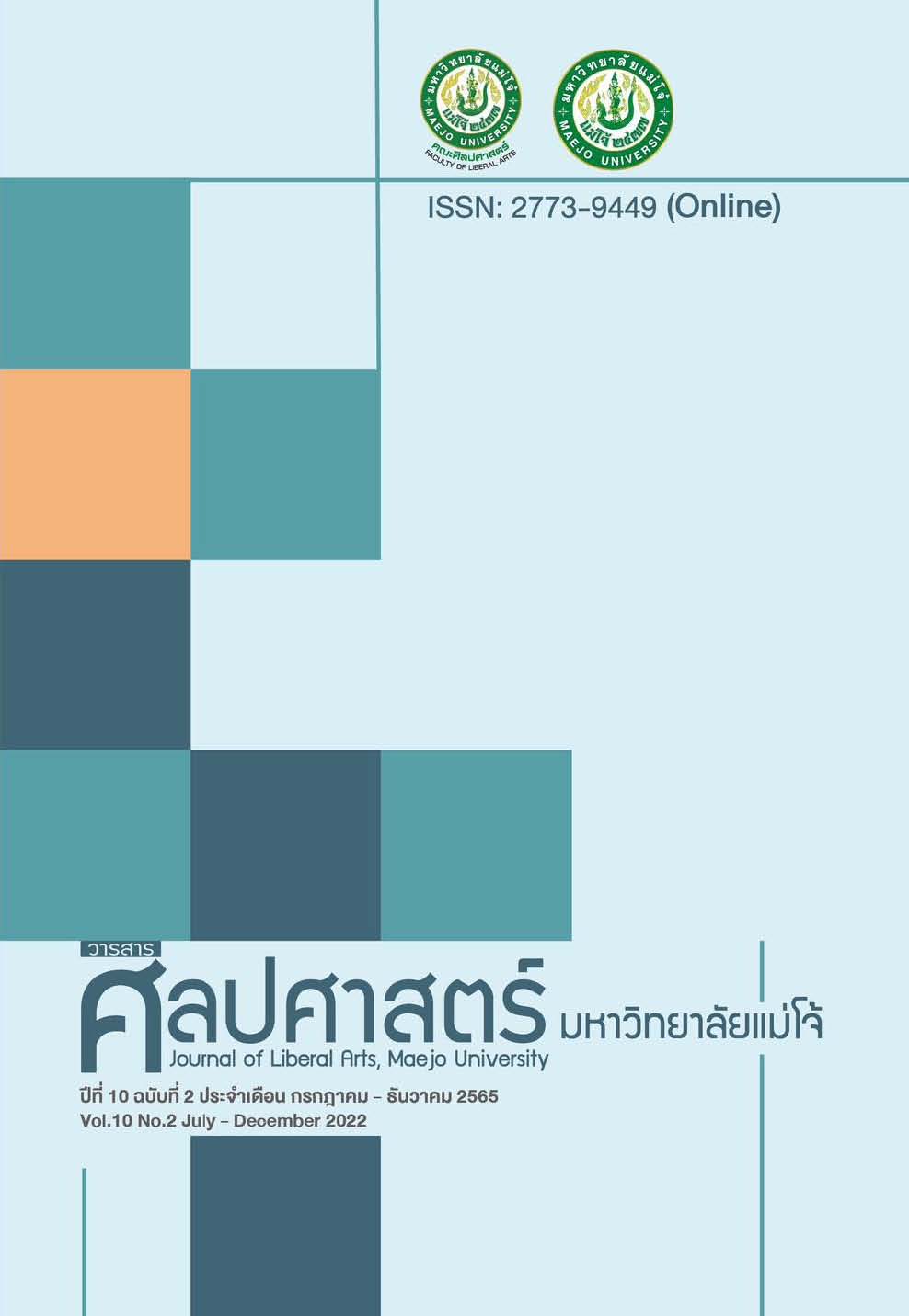การเปรียบเทียบการเรียนปกติกับเรียนออนไลน์ในช่วงโควิด 19: กรณีศึกษาวิชาการฟัง และการพูดภาษาอังกฤษของวิทยาลัยพยาบาลบรมราชชนนี แพร่
Main Article Content
บทคัดย่อ
งานวิจัยนี้เป็นการวิจัยเชิงทดลองเบื้องต้น มีวัตถุประสงค์เพื่อ 1) เปรียบเทียบผลสัมฤทธิ์ทางการเรียนระหว่างการเรียนปกติกับเรียนออนไลน์ 2) เปรียบเทียบความคิดเห็นของนักศึกษาต่อการจัดการเรียนการสอนระหว่างการเรียนปกติกับเรียนออนไลน์ กลุ่มตัวอย่าง คือ นักศึกษาวิทยาลัยพยาบาลบรมราชชนนี แพร่ ชั้นปีที่ 2 ซึ่งลงทะเบียนเรียนวิชาการฟังและการพูดภาษาอังกฤษ จำนวน 49 คน โดยการสุ่มแบบเจาะจง เครื่องมือที่ใช้ในการวิจัย คือ แบบทดสอบกลางภาค ปลายภาค และแบบประเมินความคิดเห็นต่อการจัดการเรียนการสอนระหว่างการเรียนปกติกับเรียนออนไลน์ ผู้วิจัยทดลองและเก็บรวบรวมข้อมูลระหว่างพฤษภาคม ถึงกรกฎาคม 2563 สถิติที่ใช้ในการวิเคราะห์ข้อมูล คือ ค่าร้อยละ ค่าความถี่ ค่าเฉลี่ย ส่วนเบี่ยงเบนมาตรฐาน และการทดสอบทีแบบจับคู่สิ่งทดลอง ผลการวิจัยพบว่า 1) ผลสัมฤทธิ์ทางการเรียนของนักศึกษาหลังเรียนปกติสูงกว่าเรียนออนไลน์อย่างมีนัยสำคัญทางสถิติที่ระดับ .01 และ 2) คะแนนความคิดเห็นต่อการจัดการเรียนการสอนปกติสูงกว่าเรียนออนไลน์อย่างมีนัยสำคัญทางสถิติที่ระดับ .01 ขณะที่ระดับความคิดเห็นต่อการจัดการเรียนการสอนทั้งสองแบบโดยรวมอยู่ในระดับปานกลาง เรียนปกติ ( =3.37) และเรียนออนไลน์ ( =3.22)
Article Details

อนุญาตภายใต้เงื่อนไข Creative Commons Attribution-NonCommercial-NoDerivatives 4.0 International License.
ต้นฉบับที่ได้รับการตีพิมพ์ในวารสารคณะศิลปศาสตร์ มหาวิทยาลัยแม่โจ้ ถือเป็นกรรมสิทธิ์ของมหาวิทยาลัยแม่โจ้ ห้ามนำข้อความทั้งหมดหรือบางส่วนไปพิมพ์ซ้ำ เว้นเสียแต่จะได้รับอนุญาตจากมหาวิทยาลัยฯ เป็นลายลักษณ์อักษรเอกสารอ้างอิง
กระทรวงศึกษาธิการ.
จักรกฤษณ์ โพดาพล. (2563). การจัดการเรียนรู้ออนไลน์:วีถีที่เป็นไปทางการศึกษา. สืบค้น 25 ตุลาคม 2563, จาก
http://slc.mbu.ac.th/wp-content/uploads/2020/06/การจัดการเรียนรู้ออนไลน์-ดร.จักรกฤษณ์-โพด.
จันทร์จิรา จูมพลหล้า. (2560). เอกสารประกอบการเรียนการสอนรายวิชาการออกแบบและการจัดการเรียนรู้. คณะ
ครุศาสตร์ มหาวิทยาลัยราชภัฏอุดรธานี.
จุฬาลงกรณ์มหาวิทยาลัย. (2564). 6 เคล็ดลับในการเรียนการสอนออนไลน์ให้มีประสิทธิภาพ. สืบค้น 20 มกราคม
2564, จาก https://www.chula.ac.th/news/40851/
ฐาปนีย์ ธรรมเมธา. (2557). อีเลิร์นนิง: จากทฤษฎีสู่การปฏิบัติ e-Learning: from theory to practice.
โครงการมหาวิทยาลัยไซเบอร์ไทย. กรุงเทพ: สำนักคณะกรรมการการอุดมศึกษา.
ภรณี ลัคนาภิเศรษฐ์. (2563). 3 แนวทางสอนทักษะในศตวรรษที่ 21 ในห้องเรียนออนไลน์. สืบค้น 5 มกราคม
2564, จาก http://www.educathai.com/knowledge/articles/349
ภูษิมา ภิญโญสินวัฒน์. (2563). จัดการเรียนการสอนอย่างไรในสถานการณ์โควิด-19: จากบทเรียนต่างประเทศสู่
การจัดการเรียนรู้ของไทย. สืบค้น 5 กันยายน 2563, จาก https://tdri.or.th/2020/05/examples-of-teaching-and-learning-in-covid-19-pandemic/
มติชนออนไลน์. (2564). อาจารย์จุฬาฯ ชี้เรียนออนไลน์ช่วงโควิดไม่เวิร์ค. สืบค้น 15 พฤษภาคม 2564, จาก
https://www.matichon.co.th/education/news_2522062
วิทยา วาโย, อภิรดี เจริญนุกูล, ฉัตรสุดา กานกายันต์ และจรรยา คนใหญ่ (2563). การเรียนการสอนแบบออนไลน์
ภายใต้สถานการณ์แพร่ระบาดของไวรัส COVID-19: แนวคิดและการประยุกต์ใช้จัดการเรียนการสอน. วารสาร
ศูนย์อนามัยที่ 9, 14 (34), 285-298.
เสถียร พูลผล และ ปฎิพล อรรณพบริบูรณ์. (2563). การสำรวจความคิดเห็นของนักศึกษาเภสัชศาสตร์ที่มีต่อการเรียน
การสอนออนไลน์ในช่วงโควิท 19 เพื่อออกแบบแนวทางการจัดการเรียนรู้รูปแบบใหม่ของคณะเภสัชศาสตร์
มหาวิทยาลัยสยาม. สืบค้น 25 มกราคม 2564, จาก https://e-research.siam.edu/wpcontent/
uploads/2020/08/Sathian-proceeding-ThaiPOD2563.pdf
อรรชนิดา หวานคง. (2559). การจัดการเรียนการสอนภาษาอังกฤษในศตวรรษที่ 21. วารสารสถาบันวิจัยญาณสังวร,
7 (2), 303-314.

